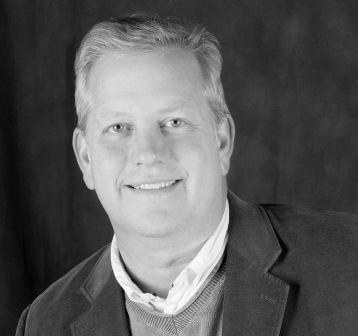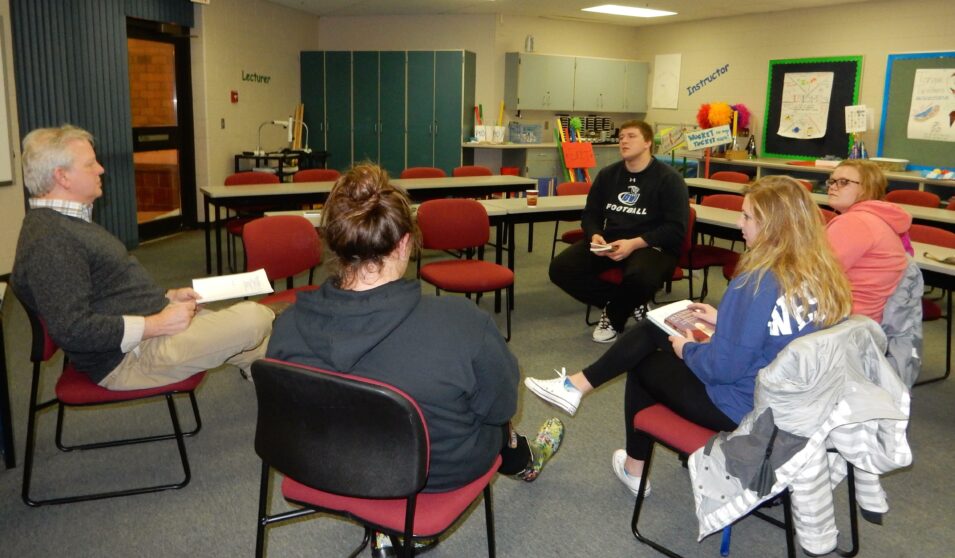Editor’s note: The Rural Schools Collaborative is working with Dakota Wesleyan University (DWU) on a student-centered Rural Teacher Corps visioning project. Located in Mitchell, South Dakota, DWU has an enrollment of around 750 students and has had an historically strong liberal arts focus. The institution was recently awarded a $750,000 Cargill grant for a rural healthcare initiative, and DWU, under the leadership of President Amy Novak, is exploring and enhancing its role as a rural development center.
The work of this Rural Schools Collaborative planning grant is based on the continued success of Missouri’s Ozarks Teacher Corps, which has been in existence since 2009. Funding from the Rural Schools Collaborative, Dakota Wesleyan University, and an anonymous donor supports the $10,000 planning project.
Small college. Big impact. These four words describe Dakota Wesleyan University in many ways, and our partnership to explore the Rural Teacher Corps concept illustrates this perfectly. The effort is centered on a small group of DWU teacher education majors, who plan on teaching in rural schools. Coordinated by project facilitator, Mike Knutson, the group is tackling the following issues:
- Explore and begin to articulate their own rural identity as future teachers;
- Take initial steps to create a relational network of peers that will support, encourage, and inspire each other in the years ahead;
- Explore, imagine, and, ultimately, propose appropriate pathways for the Rural Schools Collaborative and its partners to recruit, prepare, and engage/retain a working Rural Teacher Corps, one that has the potential to re-imagine rural education and its leadership roles in given communities or regions.
One of the group’s first activities was to read the book Hollowing out the Middle by Maria Kefalas and Patrick Carr. Knutson believes this book encourages readers to consider the challenges facing rural communities and to think more deeply about their own rural identity. DWU student, Anna Pazour, echoes Knutson’s sentiments:
“Reading Hollowing out the Middle has made me realize how much the rural parts of the United States have been negatively impacted over the years, including them decreasing in size and losing the people that society considers successful. Through deeper understand and conversations with the group of future rural educators that I am involved in, I have learned the true meaning as to why people decide to leave, while also discussing how to get individuals to stay in the Heartland and contribute back to the one place they can call home.”
Knutson added, “The students definitely saw themselves and their friends in the two categories described in the book, ‘achievers’ and ‘stayers.’ They really wrestled with the authors' thesis that we over-invest in those who are going to leave rural communities. I think reading the book has made the students re-assess the way they look at stayers."
In addition to reflecting on the reading, Knutson and the students have explored the concept of teacher-leadership and what it may mean to be a rural teacher-leader in the years ahead. Again, Pazour:
“One of the ways that our discussions have impacted me is by realizing how important teachers are in the communities of midwestern America and some different things that I can do as a future educator to help students contribute to their communities. I not only want them to take part in their community as students and young residents of the town, but also become successful, active citizens that choose to stay and give back to the community that helped them find out who they truly are.”
The Dakota Wesleyan students aren’t the only future rural teachers who are exploring these kinds of issues. To date, students from Missouri State University, Drury University, Evangel University, Southern Illinois University and the University of West Alabama have provided insights and ideas on these subjects. On June 13-14, many of these same participants will join faculty members, rural thought leaders, and Rural Schools Collaborative advocates for a more intensive discussion on what a Rural Teacher Corps should entail.
We will be providing more information on the June 2016 Rural Teacher Corps Co-Design Summit in the weeks ahead.
If you are interested in joining this conversation, please contact us at info@ruralschoolscollaborative.org or call Rural Schools Collaborative’s Gary Funk at 417-848-9083.

Mike Knutson is President, MAK(e) Strategies, Watertown, South Dakota and a Rural Schools Collaborative advocate. We you invite to read more about Mike's commitment to rural places and South Dakota. Thanks to Mike for his willingness to help us out with this project.




